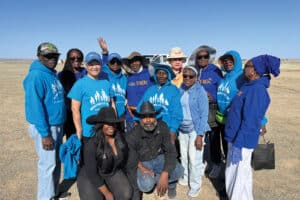Origin of Presidents DayTwo great presidents óone Monday holiday: From History.com, Washingtonís Birthday was an unofficial observance for most of the 1800s; it was not until the late 1870s that it became a federal holiday. In 1879, President Rutherford B. Hayes signed it into law. The holiday initially only applied to the District of Columbia; but, in 1885, it was expanded to the whole country.In the late 1960s, Congress proposed a measure known as the Uniform Monday Holiday Act. Championed by Sen. Robert McClory of Illinois, this law sought to shift the celebration of several federal holidays from specific dates to a series of predetermined Mondays.The proposed change was seen by many as a novel way to create more three-day weekends for the nationís workers, and it was believed that ensuring holidays always fell on the same weekday would reduce employee absenteeism. While some argued that shifting holidays from their original dates would cheapen their meaning, the bill also had widespread support from both the private sector and labor unions and was seen as a surefire way to bolster retail sales.The Uniform Monday Holiday Act also included a provision to combine the celebration of Washingtonís birthday with that of Abraham Lincoln, which fell on Feb. 12, and many supported joining the two days as a way of giving equal recognition to two of Americaís most famous statesmen.The main piece of the Uniform Monday Holiday Act passed in 1968 officially took effect in 1971, following an executive order from President Richard M. Nixon. Washingtonís Birthday was then shifted from the fixed date of Feb. 22 to the third Monday of February.Origins of Black History MonthFebruary does not just recognize influential American presidents but also the accomplishments of African Americans and their central role in American history. According to History.com, African American History Month grew out of ìNegro History Week,î the brainchild of noted historian Carter G. Woodson and other prominent African Americans. Since 1976, every U.S. president has officially designated the month of February as Black History Month. Other countries around the world, including Canada and the United Kingdom, also devote a month to celebrating Black history.From the he Association for the Study of African American Life and History website (ASALH.org), the story of Black History Month begins in Chicago during the summer of 1915. Carter G. Woodson traveled from Washington, D.C. to participate in a national celebration of the 50th anniversary of emancipation sponsored by the state of Illinois. Inspired by the three-week celebration, Woodson decided to form an organization to promote the scientific study of black life and history before leaving town. On Sept. 9, Woodson met at the Wabash YMCA with A. L. Jackson and three others and formed the Association for the Study of Negro Life and History.In 1925, he decided that the Association had to shoulder the responsibility to both create and popularize knowledge about the black past. He sent out a press release announcing Negro History Week in February 1926. It is commonly said that Woodson selected February to encompass the birthdays of two great Americans who played a prominent role in shaping black history, namely Abraham Lincoln and Frederick Douglass. In 1937, Woodson established the Negro History Bulletin, which focused on the annual theme.By the late 1960s, young black students on college campuses became increasingly conscious of links with Africa; Black History Month replaced Negro History Week at a quickening pace. Within the Association, younger intellectuals, part of the awakening, prodded Woodsonís organization to change with the times. They succeeded. In 1976, 50 years after the first celebration, the Association used its influence to institutionalize the shifts from a week to a month and from Negro history to black history.The themes from the past five years of Black History Month begin with 2017, The Crisis in Black Education; 2018, African Americans in Times of War; 2019, Black Migrations; 2020, African Americans and the Vote; 2021, The Black Family: Representation,Identity and Diversity.






